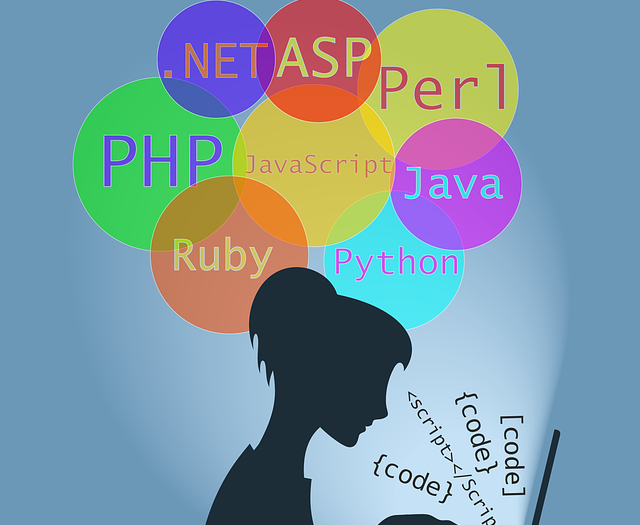Difference Between Dotnet Programming and Java Programming
In the ever-evolving world of software development, choosing the right programming framework or language is crucial for developers and organizations. Among the most popular choices are Dotnet (often written as .NET) and Java. Both of these technologies have stood the test of time, offering robust solutions for various applications. This article will explore the key differences between Dotnet programming and Java programming, helping you understand which might suit your project needs better.
What is Dotnet Programming?
Dotnet (.NET) is a free, open-source development framework created by Microsoft. It supports multiple languages, including C#, VB.NET, and F#, allowing developers to build a wide range of applications for web, mobile, desktop, gaming, and IoT. The framework is known for its versatility and integration with the Microsoft ecosystem.
Key Features of Dotnet Programming:
- Cross-Platform Support: With .NET Core and .NET 5/6, Dotnet offers cross-platform development capabilities.
- Rich Library Support: The .NET Framework provides an extensive library that simplifies complex programming tasks.
- Language Interoperability: Dotnet enables seamless integration between multiple programming languages.
- Built-in Security Features: The framework includes robust security features like authentication, encryption, and code access security.
- Strong Community Support: Being backed by Microsoft ensures regular updates and a strong developer community.
What is Java Programming?
Java, developed by Sun Microsystems (now owned by Oracle), is a high-level, object-oriented programming language. It is widely used for building server-side applications, web applications, Android apps, and enterprise-level systems. Java’s “Write Once, Run Anywhere” (WORA) philosophy has made it one of the most reliable and platform-independent programming languages.
Key Features of Java Programming:
- Platform Independence: Java applications can run on any device with a Java Virtual Machine (JVM).
- Extensive API Support: Java offers a comprehensive set of APIs for networking, database connectivity, and more.
- Strong Object-Oriented Paradigm: Java follows the principles of object-oriented programming, making it modular and reusable.
- Rich Development Tools: Tools like Eclipse and IntelliJ IDEA enhance productivity.
- Wide Community Support: Java boasts one of the largest and most active developer communities worldwide.
Key Differences Between Dotnet and Java Programming
While Dotnet and Java share some similarities, their differences make them suitable for distinct use cases. Let’s delve into the critical aspects that set them apart:
1. Platform Dependency
- Dotnet: Initially designed for Windows, Dotnet has evolved into a cross-platform framework with .NET Core and later versions. However, its roots in the Microsoft ecosystem mean it works exceptionally well with Windows-based applications.
- Java: Known for its platform independence, Java applications can run seamlessly on any device or OS with a JVM. This feature makes Java highly portable and versatile.
2. Programming Languages Supported
- Dotnet: Supports multiple languages, including C#, VB.NET, and F#, offering flexibility for developers.
- Java: Primarily uses Java as the programming language, although it can integrate with other languages through JVM-based platforms like Kotlin and Groovy.
3. Performance
- Dotnet: With advancements like the Just-In-Time (JIT) compiler and optimized libraries, Dotnet offers faster runtime performance for many applications.
- Java: While Java’s performance is commendable, its reliance on the JVM can sometimes result in slower execution compared to native frameworks like Dotnet.
4. Development Tools
- Dotnet: Visual Studio is the flagship IDE for Dotnet development, providing an integrated environment with debugging, testing, and deployment tools.
- Java: Java developers often use tools like Eclipse, IntelliJ IDEA, and NetBeans, which are powerful and versatile.
5. Community and Ecosystem
- Dotnet: While the Dotnet community is strong, it is smaller compared to Java’s global reach. However, Microsoft’s backing ensures continuous development and support.
- Java: Java’s community is one of the largest in the programming world, with extensive documentation, forums, and third-party tools available.
6. Cost and Licensing
- Dotnet: Although Dotnet is open-source, some features and tools like Visual Studio Enterprise come with licensing costs.
- Java: Java is free to use, but Oracle’s licensing model for certain enterprise features may involve costs.
7. Use Cases
- Dotnet: Best suited for enterprise-level applications, Windows-based software, and applications requiring seamless integration with other Microsoft products.
- Java: Ideal for cross-platform applications, mobile app development (especially Android), and large-scale enterprise systems.
Which One Should You Choose?
The choice between Dotnet and Java depends on various factors like project requirements, budget, and developer expertise. Here are some scenarios to help you decide:
- Choose Dotnet if:
- Your application needs deep integration with the Microsoft ecosystem.
- You are developing for Windows-based systems.
- You need high performance and scalability.
- Choose Java if:
- Your priority is platform independence.
- You are building Android applications.
- You require a language with extensive community support and resources.
Learn Dotnet and Java Online
Whether you’re a beginner or an experienced developer, mastering Dotnet and Java can open doors to numerous opportunities. For comprehensive Online Software Training in India, Revanth Technologies offers industry-leading courses in Dotnet and Java programming.
For more information on learning programming languages and frameworks, explore our online training options.
Conclusion
Dotnet and Java are both powerful technologies with unique advantages. Understanding their differences can guide you in selecting the right framework for your next project. Whether it’s Dotnet’s seamless Microsoft integration or Java’s unparalleled platform independence, both frameworks offer reliable solutions for modern software development.
If you want to join Java online training or Dotnet online training, you can contact us at +91-9290971883 / +91-9394799566. Investing time in learning these technologies will not only boost your career but also help you deliver high-quality, scalable applications that meet the demands of today’s dynamic software landscape.
